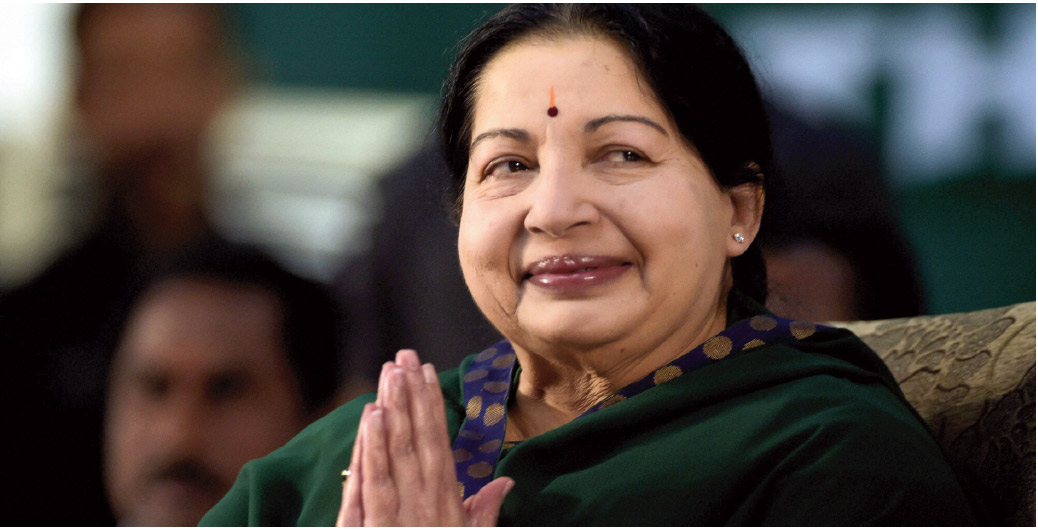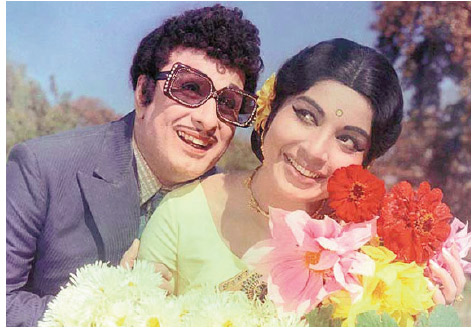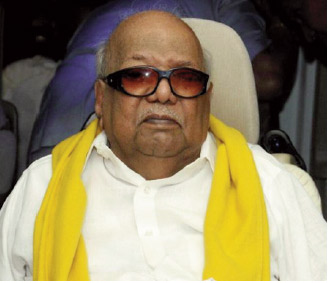
 |
TAMIL NADU POLITICS
The Amma legend
In one of her rare interviews, she had said: "I hated films, but my mother pushed me into it; I hated politics, but MGR pushed me to enter politics." But, she was so focused in whatever she did that she rose to great heights in both the fields, swimming against considerable odds. had not been seen in this country since the death of Indira Gandhi. As four-time Chief Minister of Tamil Nadu, who had twice come very close to playing an important role in national politics, Jayalalithaa had earned the respect and admiration of not only common people, but also some of her bitterest political rivals and critics. Through sheer determination, dedication, hard work and tenacity, she left an indelible mark in cinema as well as politics. In one of her rare interviews, she had said: "I hated films, but my mother pushed me into it; I hated politics, but MGR pushed me to enter politics." But, she was so focused in whatever she did that she rose to great heights in both the fields, swimming against considerable odds. Born in a middle-class Mandyam Iyengar Brahmin family at the temple town of Melkote in Karnataka, Jayalalithaa dreamt of becoming a lawyer just like her father Jayaram or Jethmalani, whom she admired. When her father died when she was very young, actress-mother Sandhya moved into Jaya's grandfather Rangaswamy Ieyngar's house in Bengaluru. Jaya studied at the Bishop Cotton's school till 4th standard, where she had the reputation of being both studious and naughty, before Sandhya moved to Madras to pursue her film career.
Jayalalithaa's major drawback as a political leader was that she never encouraged or developed a second line of leadership in the party or the government, either because she would not trust anybody or no one came up to her expectation. From then on, MGR changed Jaya's life for ever. Though there was an age difference of 35 years between them, Jaya virtually became MGR's shadow. It is said that he started controlling her life so much that he began to manage her film career and finances and even the clothes she could wear. They spent so much time together that in the film fraternity, she was referred to as 'Anni,' (elder brother's unofficial wife – the elder brother in this case being MGR). Jaya yearned for respectability by marrying MGR, but that didn't happen. She also acted in a number of Telugu films, and along with Shoban Babu, acquired a considerable fanfollowing. She fell in love with Shoban Babu and wanted to marry him, though he was already married, having a teen-aged son. It remains a mystery whether the two married or not. Some people say that they exchanged garlands in a temple, but the other version is that Shoban Babu ditched her and did not turn up for the marriage. When the acting offers began to dry up, she reportedly briefly contemplated suicide. MGR had split from Karunanidhi, formed his own party called AIADMK and become the chief minister of Tamil Nadu in 1977. Five years later in 1982, Jayalalithaa went back to MGR, who made her propaganda secretary of the party and put her in charge of the mid-day meal scheme for schoolchildren, which was becoming popular. It gave her the first taste of a populist programme and she was able to realise its value in garnering votes for the party. When MGR fell sick in 1984 and was hospitalised for long periods, Jaya took charge of extensive campaigning for the party. After MGR's death in 1987, other senior leaders of the party ganged up against Jaya and tried to prop up MGR's wife, Janaki, which led to a split in the AIADMK Jayalalithaa became chief minister for the first time in 1991. She gained instant popularity but remained aloof from the party cadres. She was wary of men and their devices. Not having an immediate family to support her also did not help. That's when Sasikala and her entourage made their entry into her life, cutting off access to all other people. They began to misuse their proximity to the chief minister, which resulted in several scandals and ultimately, Jayalalithaa's defeat in the 1996 election. arunanidhi tried to finish her off politically by foisting a number of cases and she even spent a month in jail. She was shaken badly and contemplated giving up politics. But as leader of the opposition, the humiliation she underwent in the Assembly hall when some DMK members virtually tried to disrobe her, made her all the more determined to come back and teach her detractors a lesson
|
|



 Ramakrishna Upadhya
Ramakrishna Upadhya
 MG Ramachandran and J Jayalalitha
MG Ramachandran and J Jayalalitha M. Karunanidhi
M. Karunanidhi